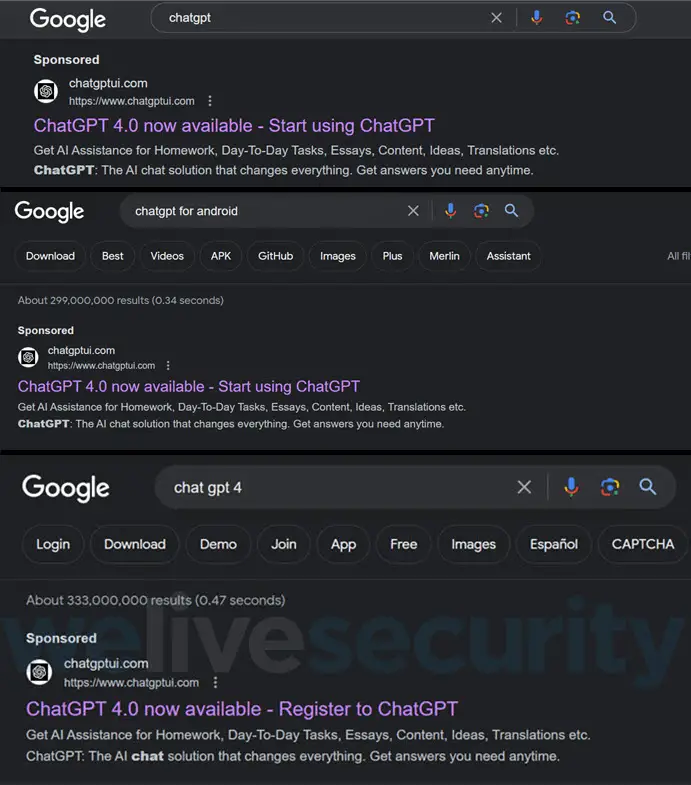
Fake ChatGPT sites appearing in ads | Image: ESET
Cybercriminals are increasingly exploiting search engine optimization techniques to lure unsuspecting users to malicious websites. Both “black hat SEO” strategies and paid advertisements are being employed to ensure that harmful resources appear prominently in search results.
This tactic, known as SEO poisoning, involves disguising malicious content as legitimate websites, leveraging users’ trust in reputable brands. Notably, campaigns have been discovered in which fake sites mimicked download pages for popular applications—such as Firefox, WhatsApp, and Telegram—deceiving users into surrendering confidential information.
Researchers at ESET analyzed campaigns where fraudsters used deceptive Google ads to lure victims to counterfeit websites, some of which had the capability to seize full control of a user’s device.
The financial sector remains an especially attractive target. In 2022, instances in Latin America were documented where malicious ads masqueraded as Mastercard promotions. Another case involved a phishing attack impersonating the Argentine bus company La Veloz del Norte, through which personal and payment data were stolen from users attempting to purchase tickets.
Artificial intelligence is also expanding the toolkit of cybercriminals. Fraudsters now actively promote fake services allegedly powered by AI—such as counterfeit ChatGPT websites—designed to harvest victims’ credit card details. These deceptive pages often feature logos of trusted brands to enhance their credibility.
Search engines continue to combat this threat. According to Google Ads’ 2023 Safety Report, the company blocked or removed more than 5.5 billion ads. Still, some malicious campaigns continue to slip through the cracks.
To mitigate these risks, experts advise users to scrutinize URLs before clicking, use robust antivirus solutions, enable two-factor authentication, and vet advertisements through Google’s built-in verification tools.
These manipulations of search results underscore the importance of remaining vigilant with every click. Despite the evolution of technology and AI, traditional search remains widely used—making the threat of landing on a fraudulent website as relevant as ever.


